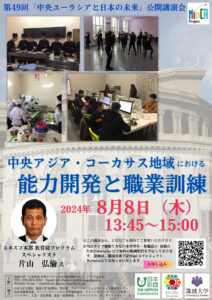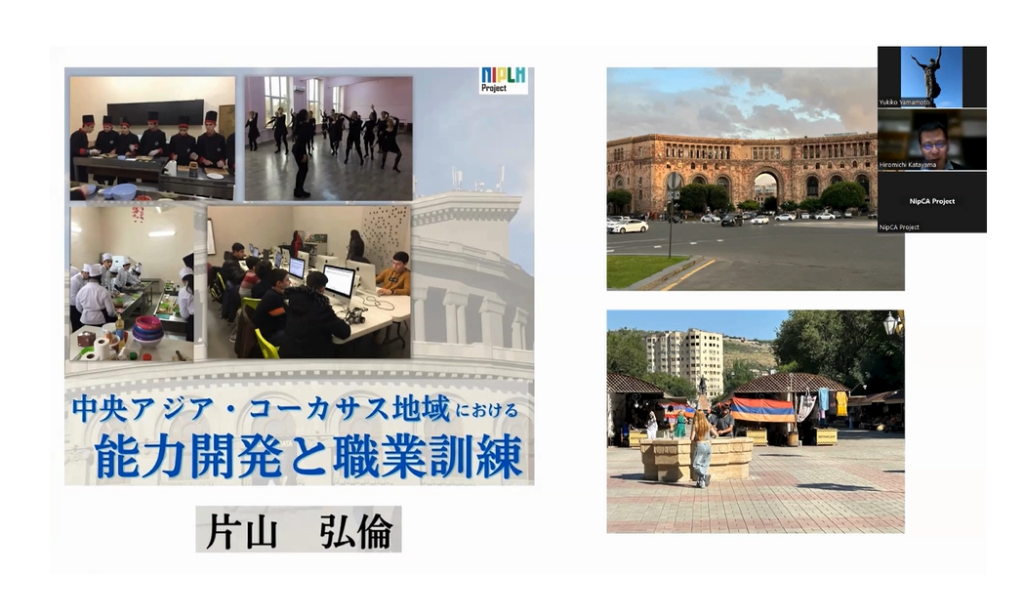The 49th public lecture series, “The Future of Central Eurasia and Japan” was held on August 8, 2024. Dr. Katayama Hiromichi , Program Specialist at the Section of Youth, Literacy and Skills Development of United Nations Educational, Scientific and Cultural Organization (UNESCO), delivered a lecture titled “Capacity Building and Vocational Training in Central Asia and the Caucasus.”
Dr. Katayama started his career at the Japan International Cooperation Agency (JICA), and gained experience working for UNESCO’s Education Department. After leaving JICA, he worked for international organizations such as the World Bank and the OECD, conducting surveys and research in the field of education. Currently, he is engaging in support and research on technical education, professional training, and skills development for employment across multiple countries.
In the lecture, Dr. Katayama talked about UNESCO’s technical education and Vocational Education and Training (TVET) activities, as well as the current situation in Armenian where he has been closely involved over the past few months, and how they are responding to the challenges.
UNESCO’s priority strategies include “developing individual capacity for learning, working and living” and “developing skills for inclusive and sustainable economies.” He said that lessons learned from the OECD need to be taken into account, as the success stories from Africa, where there are many activities, will not necessarily be useful in the Caucasus region.
Armenia is in a very difficult geopolitical situation due to its conflict with Azerbaijan over Nagorno-Karabakh. In particular, dealing with the 100,000 refugees from Nagorno-Karabakh is a pressing issue. There may be job opportunities for them in the capital, Yerevan, but housing is too expensive to live in. On the other hand, in the provincial towns, housing is less expensive, yet there are no job opportunities. Even under these circumstances, UNESCO believes it is important to support people by helping them acquire the necessary skills and find work.
The talk enhanced our understanding of UNESCO’s activities and the challenges of providing technical education and vocational training in the context of each country’s unique geopolitical complexities.




